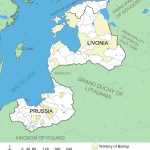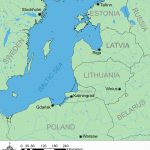From the late 12th century and throughout much of the 13th century, crusading armies unleashed a relentless holy war against the native societies of the eastern Baltic, defined as threatening ‘pagans’ by their Christian neighbours. The conquered territories were reorganised as Catholic polities called Livonia and Prussia, largely governed by a militarised theocracy, consisting of the Teutonic Order, bishops and their cathedral chapters. They constructed imposing fortified monasteries, encouraged migrants to settle in newly established towns and, in some regions, populate the countryside. They also imposed Latin Christianity on the conquered societies. To sustain its political and military assets, the theocracy intensified the exploitation of natural resources within its domains. At a time of deteriorating climate, their impact on the local environment, especially plants and animals, would have been profound. Since many aspects of the natural world were sacred to the native societies of the eastern Baltic, this impact would be synonymous with the cultural changes that created a new world – a European world – at this frontier of Christendom. Throughout the 14th century, the dominant theocratic authority, the Teutonic Order, led countless military campaigns against Lithuania, which remained defiantly independent and pagan until its Grand Duke converted to Catholicism following a political union with Poland. Knights from all over Europe participated in these campaigns and many did not return from the frontier. The Order’s rule endured until the 16th century when its Baltic branches were secularised and became vassals of Poland and Lithuania. The eastern Baltic would remain the focus of brutal power struggles between rival states into the 20th century.
The Ecology of Crusading: The Environmental Impact of Conquest, Colonisation and Religious Conversion in the Medieval Baltic was a multi-disciplinary research programme with inter-disciplinary objectives, running from 2010-2014, funded by the European Research Council (within the European Union’s Seventh Framework Programme (FP7/2007-2013) under grant agreement n° 263735). It was preceded by a series of pilot studies supported by the University of Reading, the Society of Antiquaries, the Society for Medieval Archaeology and local institutional funds.
A team of archaeologists, environmental archaeology specialists and historians, led by Dr Aleks Pluskowski, investigated the environmental impact of crusading, regime change, territorial reorganisation and colonisation across the eastern Baltic, revealing how ideology was tempered by pragmatism in governing the conquered lands. Alongside material culture, written and cartographic sources, we drew on a range of ecofacts and environmental data: pollen, plant macro- and micro-fossils, timber, brick, stone, animal bones, the remains of parasites and insects, and sediments. Our long-term ecological perspective has provided a new lens for understanding cultural transformation in the eastern Baltic during this formative period in the history of Europe.



